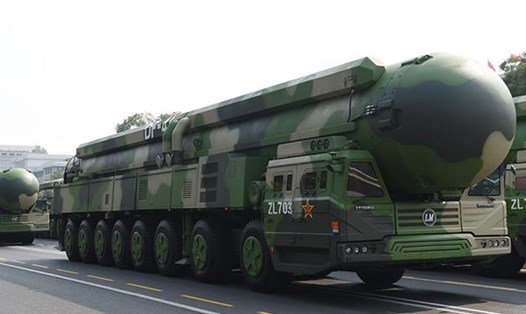Huawei, one of China's largest technology corporations, has begun testing the Ascend 910C chip with potential customers, marking an important step forward in the country's race to become self-sufficient in chip production.
Huawei is testing its Ascend 910C artificial intelligence (AI) chip with several major server companies in China, in response to demand for replacements for NVIDIA chips amid US sanctions. This is an upgraded version of the 910B chip, and major Chinese Internet companies, which are major NVIDIA customers, are being invited to participate in testing the new chip.
According to a source from Huawei’s AI chip distributor, many enterprises in China have begun testing and configuring hardware with the Ascend 910C. This marks a major step forward in Huawei’s efforts to reduce its dependence on foreign technologies, especially from the US.
Amid the US ban on exporting NVIDIA's advanced graphics processing units (GPUs) to China, Huawei has been quick to fill the void with its Ascend line of chips.
The Ascend 910B chip, which Huawei rates as on par with NVIDIA's A100, has become a leading alternative for many industries in China.
As of last year, about half of China's more than 70 largest language models were trained using Huawei's Ascend solution, demonstrating the company's growing influence in the AI field.
Eric Xu Zhijun, rotating chairman of Huawei, shared that over the past five years, Huawei has built two computing businesses to create a system that can meet the AI infrastructure needs of enterprises.
Mr. Xu also acknowledged that US restrictions on AI chips for China are unlikely to be lifted in the near future, but he stressed that this is an opportunity for Huawei to provide computing resources through its cloud services.
NVIDIA, which still counts China as its third-largest market in fiscal 2023, has been hit hard by increasingly stringent US restrictions on access to advanced semiconductor technology in China.








